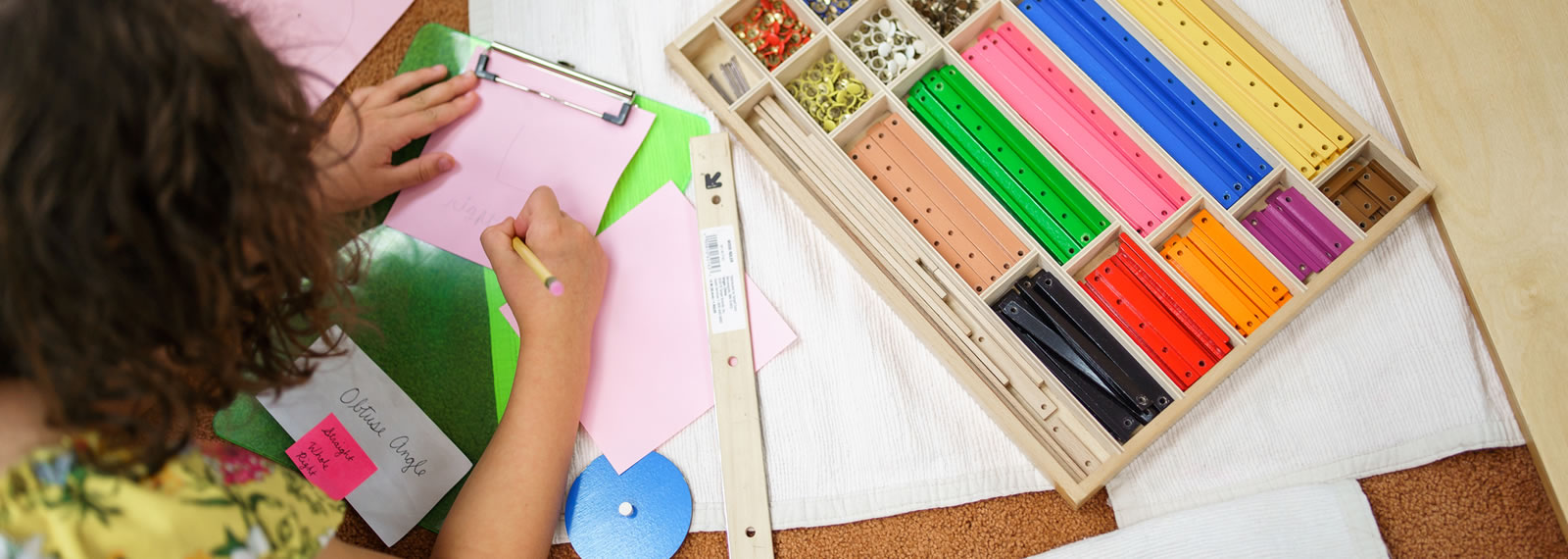At Richmond Montessori School, we follow the time-tested approach developed by Dr. Maria Montessori—an Italian physician, educator, and innovator. Montessori education is designed to nurture your child’s natural curiosity, support their individual growth, and prepare them to become both a lifelong learner and a kind, capable human being. When you choose Montessori, you’re choosing an education that goes beyond academics. We focus on the whole child—academically, socially, emotionally, and morally—so children can grow into confident, compassionate, and independent individuals.
Unique Aspects of a Montessori Education
A Montessori education represents the leading edge of progressive ideas in education. With our commitment to an authentic Montessori approach, RMS provides a unique environment for children from their toddler years to middle school. Here are important ways we are different from a conventional school.
Multi-Age Classrooms
Our classrooms are intentionally grouped by age to support collaboration, mentorship, and individualized growth. In our multi-age classrooms, younger students learn from older peers, while older students build leadership and mentoring skills. These environments foster patience, compassion, and friendships across age groups. Teachers stay with their students for multiple years, forming strong relationships and gaining deep insight into each child’s academic, social, and emotional development:
- Middle School: Grades 7 and 8
- Upper Elementary: Grades 4 to 6
- Lower Elementary: Grades 1 to 3
- Primary Program: Ages 3 to 5 (includes the Kindergarten year)
- Toddler Program: Ages 18 months to 2 years
Celebrating Our Global Community
The display of international flags at our school entrance reflects the diverse and inclusive community at Richmond Montessori School. Our students and staff come from around the world, and we take pride in celebrating the cultures, languages, and backgrounds that enrich our school. Rooted in the Montessori philosophy, we foster respect, collaboration, and belonging. We believe that diversity strengthens our community and helps students grow into thoughtful, compassionate, and globally minded citizens.
A Purposefully Designed Learning Environment
RMS classrooms are warm, welcoming, and thoughtfully designed to spark curiosity and support independence. Students learn with hands-on materials that are both beautiful and engaging, helping them move from concrete understanding to abstract thinking. In this child-centered setting, teachers introduce lessons when each student is ready, allowing children to progress at their own pace. Students choose where to work—at a table or on a floor mat—and enjoy uninterrupted time to focus, explore, and discover. Every detail of the classroom is designed to foster confidence, concentration, and a love of learning.
Freedom Within Limits
Montessori classrooms strike a thoughtful balance between independence and structure. Students have the freedom to choose their work and manage their time, guided by teachers who observe carefully and introduce lessons when students are ready. This approach nurtures confidence, self-direction, and strong decision-making skills. Within this freedom, teachers set clear, purposeful boundaries that align with learning goals. By following each child’s interests and pace, students are supported in progressing toward more complex concepts with care and intention.
Accreditation Matters
Not all “Montessori” schools offer an authentic Montessori education. Because the term isn’t trademarked, any school can use it—regardless of whether they follow true Montessori principles. Richmond Montessori School is fully accredited by both the American Montessori Society (AMS) and the Virginia Association of Independent Schools (VAIS). This dual accreditation ensures we meet the highest standards for Montessori practice and independent school excellence. Accreditation is a rigorous, voluntary process that confirms our commitment to authentic Montessori education, continuous improvement, and accountability. We are proud to be:
✔ One of only four AMS-accredited schools in Virginia
✔ One of only two schools in the state with dual AMS/VAIS accreditation
✔ The only accredited Montessori school in the Richmond area
When you choose RMS, you’re choosing a school with a proven commitment to educational excellence.





